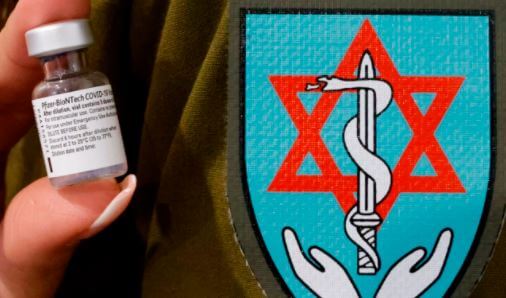The efficacy of the Pfizer vaccine has been confirmed in the first mass population study report. The findings, published on Wednesday in the New England Journal of Medicine, roughly confirm earlier randomised trials and in vitro data.
The study took 600,000 individuals who were vaccinated between 20 December 2020 and 1 February 2021, with the second dose given 28 days after the first. Subjects were paired 1:1 with unvaccinated controls based on clinical and demographic characteristics.
Vaccinated individuals were 92% less likely to be infected with SARS-CoV-2 and 94% less likely to be infected and suffer Covid-19 symptoms. They were also 92% less likely to contract a severe case of Covid-19 and 87% less likely to be hospitalised
These outcomes were based on the two-dose regimen, with data counted once vaccinated subjects were seven days or more post-their second vaccination. However, there was also significant protection against the coronavirus from the first shot.
The first dose reduced Covid-19 infection by 46% and reduced symptomatic infection by 57%, with data counted during the third week after the first shot. In especially welcome news, hospitalisation was reduced by 74% and severe disease by 62% during this period.
In the fourth week, these figures increased to 60% and 66% protection against infection and symptomatic infection respectively. There was 78% protection against hospitalisation and 80% protection against severe disease in the fourth week.
The landmark data were collected during the Pfizer vaccine roll-out in Israel. As we reported in January, Israel was given a guaranteed early supply of the Pfizer vaccine in exchange for efficacy data from its large public health system.

During the study period, the so-called UK variant (B.1.1.7) of SARS-CoV-2 was increasingly prevalent in Israel, reaching 80% of samples by study’s end. The results therefore suggest efficacy against this variant.
On the other hand, the so-called South African variant (B.1.351), with its dangerous, antibody-evading E484K mutation, was understood to be rare in Israel at the time of the study.
In vitro laboratory studies reported last week have shown the Pfizer and Moderna mRNA vaccines to be capable of neutralising the South African variant, albeit less effectively than earlier variants of the virus. The implications of these findings are not yet clear in terms of real-world efficacy.
At this stage, all we know is that the spread of the virus needs to be contained inasmuch as possible to give vaccine developers the necessary time to develop countermeasures against these new mutations.
If you liked this article, you can follow Christian on Twitter.